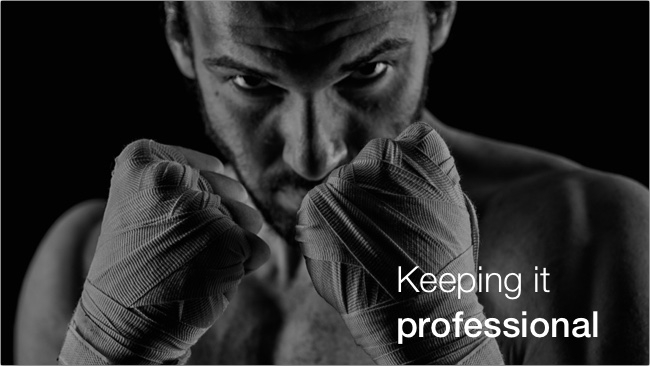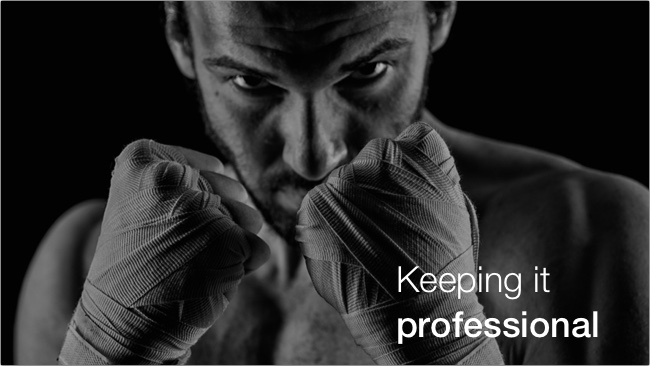
 This attitude? To be avoided...
This attitude? To be avoided...
Replay: Jonny Elwyn reckons that effective arguing in the edit room is not only an important part of the creative process, it can play a vital part in getting the end product right. Plus there's Pixar's implementation of 'plussing' to consider
As an editor it is vital you learn how to argue. As a creative collaborator you are (hopefully at any rate!) being hired not just for your technical abilities but for your creative opinion and storytelling expertise.
This means that you need to:
a) have an opinion
b) be able to share it in a productive and professional manner.
This isn’t always easy. Passionate and creative people cling tightly to work they’ve poured their (and other’s) blood, sweat and tears into, and now you’re messing with their baby. Transforming it from what they always thought it would be, to what it now needs to be.
Similarly, as the editor, you’ve invested countless hours perfecting a dynamic sequence of shots, honing every cut, polishing the performances to within an inch of their lives, and now that hard work is hanging in the balance, or being trashed as ineffective. You’re a committed passionate creative too.
Therefore, the strength of your ability to argue effectively in the edit suite will decide whether the film, and your creative relationships, will emerge in tatters, or transformed.
Keep it Professional
Keep it professional, not personal. This cuts two ways. Be professional in the way you approach the work itself and professional in the way in which you interact with your collaborators.
Being professional as an editor, means you give it your all, invest the long hours, care about the work and try your very best, yet at the same time be willing to sacrifice your personal preferences for the good of the film.
It’s called ‘murdering your darlings’ and everyone needs to be able to do it, to resist the urge to be precious about your feelings, and to protect the overall project.
This requires recognising that, just like the director who might be unwilling to sacrifice a great shot for the good of the whole scene, because he personally carried the jib-arm up the side of a mountain for three hours just to capture the dawn sunrise, that you too, as the editor, might have laboured over a sequence and put in just as much back-breaking labour, and that’s the real reason you don’t want to lose it.
You have to tread a fine line between passionate and committed creative, and professional and objective expert. And sometimes dance back and forth on that line at different stages.
In the heat of a productive argument, it’s important to be aware of your real motivations, so they don’t cloud the issues. And to be aware of the motivations in others – which, of course, is always much easier to see clearly.
You also need to keep it professional in terms of the tone, language and boundaries that you have with your collaborators.
If you’re not already old friends with plenty of relational-mileage under your belts, then you need to be wary of over-stepping the mark. Making some kind of personal jab, just to try to win the point. You might win the argument but you could well lose the person, and the working relationship.
Keep it Productive
The main purpose in effective arguing is to improve the project. This can involve suggesting good ideas, just as much as it can involve defending existing good ideas from being axed by bad ideas.
I have to admit that one of my foibles as an editor is to too quickly utter the words “That’s never going to work” or “I tried that already, it didn’t work.”
To combat this, I’ve been trying to learn from the creative giants at Pixar, and their idea, adapted from improvisational comedy, of ‘plussing’.
Plussing is a simple concept of accepting every offer and adding to it.
For example, if we were doing an improve comedy sketch and I say “It’s raining a lot in here today.” And you say “No it isn’t.” Then the idea goes nowhere.
If you say “Yeah and that’s why they gave us umbrellas.” Then the idea has been ‘plussed’ and moved along a little bit.
In an argument over a scene instead of saying “This is isn’t working and the performances are flat.” The plussed way would be to say “The scene’s working pretty well right now, but I’m not sure I’m buying this bit of it, what if we add this to the scene, to make that even more believable.”
Again, rather than retorting “I tried that and it didn’t work.” It would be better to say “I agree with you that this needs work, I tried something similar before but I couldn’t get a result I was happy with, let’s give it a try together and see what we can come up with.”
Now this might all seem like semantics, but the way in which you communicate will fundamentally shape the way in which you collaborate. And people tend to like working with people it’s fun to work along side, instead of a difficult slog.
Keep it Relational
Arguing effectively can make a relationship stronger, but only if it’s handled in the right way.
Over a long post-schedule, being locked in an edit suite with only the director or producer can feel a lot like being married.
After spending a lot of time in close proximity with one other person it is inevitable that the personal quirks you thought were, at best, cute or charming, or at worst, vaguely tolerable, can quickly become points of tension and unavoidable conflict.
We’re all going to get stuff wrong. We’re all going to get a little more heated than we intended and we’re all going to say something that we might later regret. That’s why being quick to apologise and quick to forgive are important character traits to develop, especially in any long-term working relationship.
Does that sound a bit much?
Well, think back to the last time you left the office in a rage, playing an argument round and round in your mind. Or found yourself thinking about someone you work with and getting yourself in a twist over an imagined hypothetical argument.
We’ve all done it and more than we’d care to admit. But that kind of relational residue can linger for longer than it should. A quick and candid conversation can clear the air and help you get back to the task at hand.
In conclusion, developing the ability to argue in a professional, productive and relational way will help you protect your creative projects and your career-defining relationships as well.
Main boxer image: shutterstock.com
Tags: Post & VFX


Comments